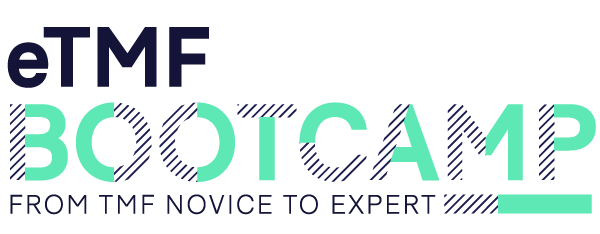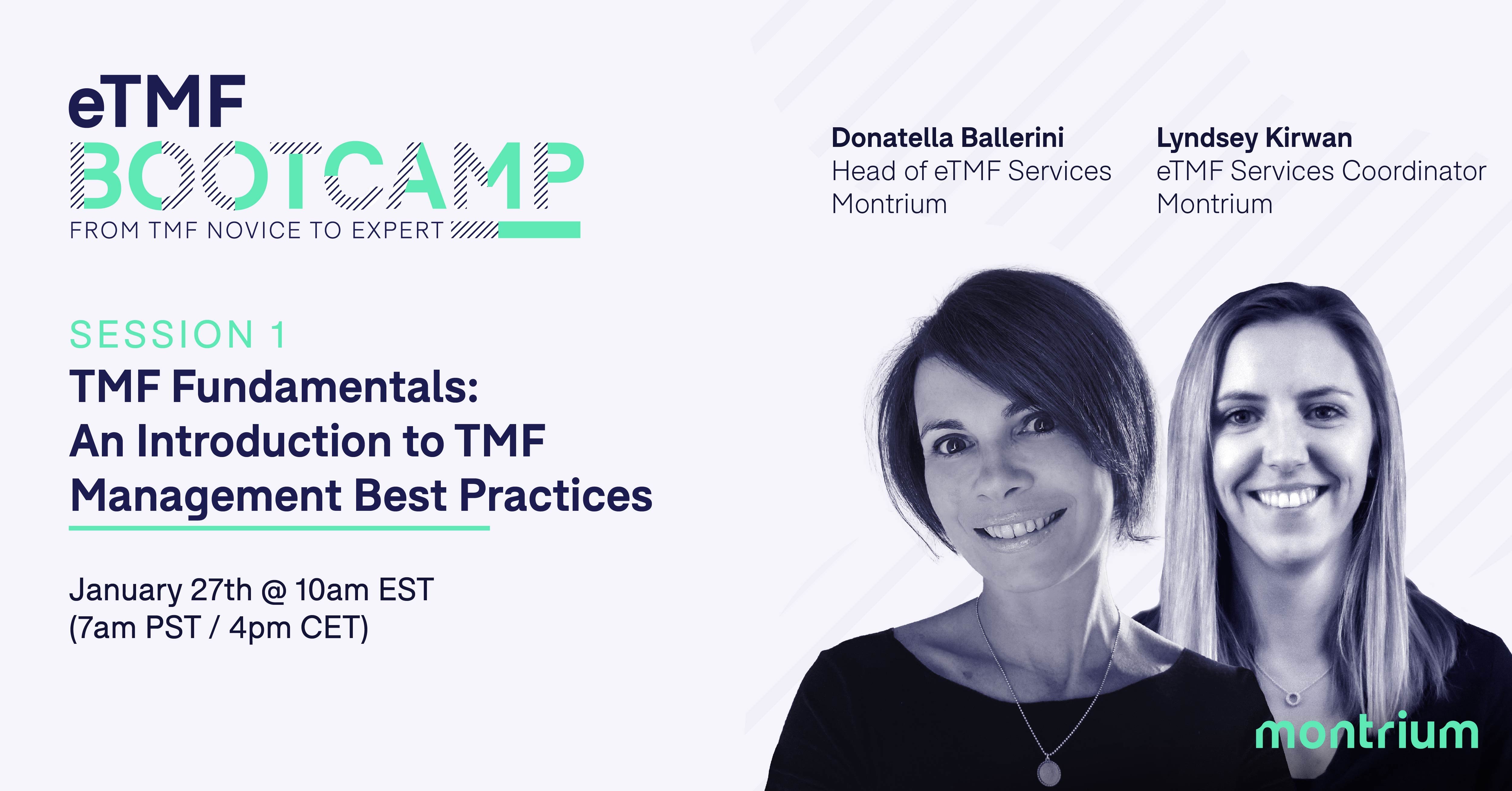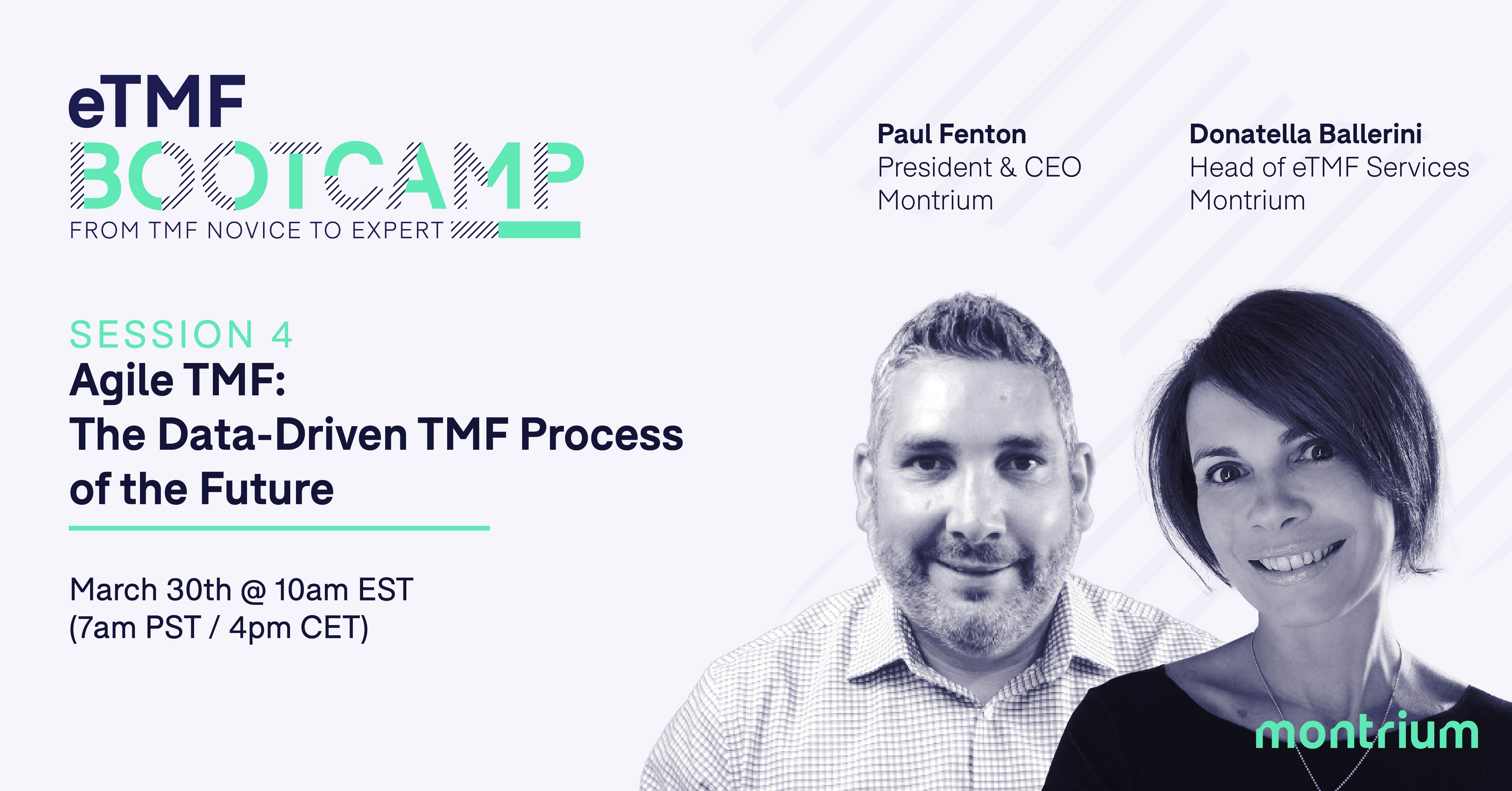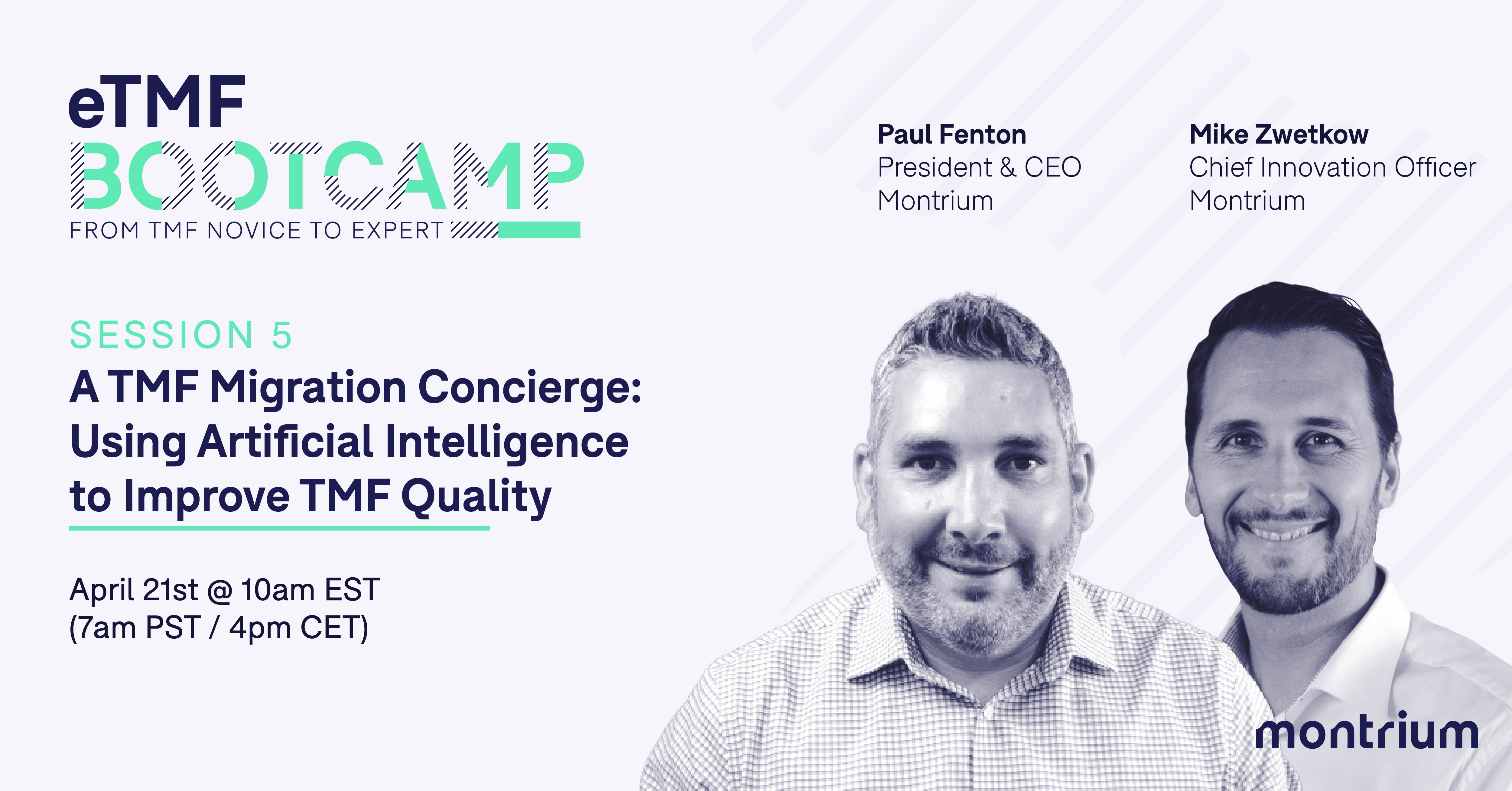
The leading on-demand course for TMF'ers
What you'll get access to:
→ TMF fundamentals and TMF management best practices
→ TMF regulations, standards, and models
→ TMF metrics
→ Agile TMF management
→ Using AI to improve TMF quality
Who's the eTMF Bootcamp for?
By popular demand, we're bringing back eTMF Bootcamp! Our five expert-led sessions will help train the next generation of TMF professionals and ClinOps leaders on some of the most crucial topics in the field. As a trainee, you will receive not only a wealth of learnings about all things TMF.

Clinical Operations Leaders
.png?width=64&name=document%20(4).png)
TMF Managers & Records Managers
.png?width=64&name=team%20(2).png)
CRAs, CTAs & Study Teams
Your instructors

Donatella Ballerini
Head of eTMF Services


Paul Fenton
President & CEO


Lyndsey Kirwan
eTMF Services Coordinator


Mike Zwetkow
Chief Innovation Officer


Fernanda Manhães
Independent Regulatory Affairs Consultant

Jamie Toth
Senior Director, Trial Master File Management

The On-Demand Sessions

This session will address all the basics of understanding the role of the TMF, creating a TMF plan, and using the TMF Reference Model. In order to truly understand your TMF, you can’t simply treat it as an archive for clinical trial documentation. Instead, you need to think of it as the story of how you conducted your trial—a story that must be kept accurate and relevant every step of the way. By implementing the TMF Reference Model, you can ensure that your story is consistent, detailed, and inspection ready.
WATCH NOW →
_Session2_3_121621.jpg)
Regulations are part of our daily routine in the life sciences industry. Understanding regulatory requirements is crucial for maintaining a consistent, quality, and compliant TMF. However, as we know, regulations are always changing and it’s essential to keep up to date with not only the current state of affairs, but also what’s to come. A thorough understanding of the regulatory requirements will help to improve your processes and guarantee better clinical study management at any stage.
WATCH NOW →
_Session3_3_121621-2.jpg)
Being able to accurately measure the health and inspection readiness of your TMF is critical to being in compliance with GCP and being able to successfully pass a regulatory inspection. In this session, we will discuss the different metrics that we typically track in a TMF as well as some others that could also be useful for the day-to-day management of your TMF. We will also discuss some of the challenges of being able to generate accurate metrics and how we can leverage technology to help. Finally, we will talk about goal setting and making sure that all stakeholders are aware of metric expectations.
WATCH NOW →

The Agile TMF Methodology is a framework for improving trial master file processes by building a proactive and data-driven approach to TMF management. Agile TMF is active, not passive, and focuses on looking beyond the traditional view of the TMF as a repository. It looks to leverage the treasure trove of data your TMF produces to make better clinical decisions and accelerate clinical development timelines. In this session, we'll be introducing the concept of Agile TMF and walking you through how you can adopt this framework within your organization in a step-by-step approach.
WATCH NOW →

Manual indexing and QC of documents can be an arduous task due to the sheer volume of records that we collect in a TMF. Enter Artificial Intelligence and Machine Learning! This technology can automate the identification, classification and QC of documents to allow clinical teams to focus on more value-added activities. This session will introduce the concept of using AI for document processing, QC, ALCOA++ verifications, and more. It will also present the importance of human interaction with AI to validate proposed decisions and train machine learning algorithms.
WATCH NOW →

